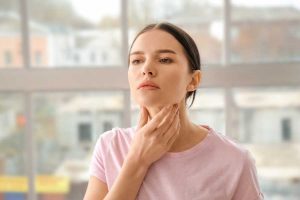Many patients find it counterintuitive that underneath the lean, toned body aesthetic lurk suppressed reproductive hormones that jeopardize their health. They have worked hard sculpting an athletic physique, yet unknowingly disrupted key biochemistry. It seems perplexing that more exercise and less body fat could stall critical processes like ovulation and testosterone production. Yet pushing your body too far past sustainable thresholds triggers stress response and protective shutdowns.
Lean Female Athletes Stop Ovulating
In my clinic, it’s very common to see female patients who are exercising vigorously yet are no longer ovulating. Some have missed periods for months or years before seeking help.
Ripped Men Can Have Extremely Low Testosterone
Similarly, I frequently see men who appear very muscular and “ripped” yet suffer from testosterone levels in the gutter. Their intense diet and exercise regimens to build muscle mass have instead backfired, tanking their testosterone. In these patients, their hypogonadism also often impacts sperm quantity and quality, reducing fertility.
As a holistic physician focusing on hormone balance and fertility, I often treat men and women struggling with the intertwined conditions of the Athlete Triad. Recognizing when your exercise and diet regimen has crossed over into dangerous territory is critical for protecting your hormones, energy levels, and even reproductive health.
What is the Athlete Triad?
The Athlete Triad refers to three interrelated health issues caused by excessive exercise combined with inadequate calorie intake:
- Energy deficiency: An imbalance where you’re burning more calories through exercise than you’re consuming through your diet. This state of “low energy availability” stresses your metabolic systems.
- Reproductive suppression: Signals from your hypothalamus cause your pituitary gland to reduce key hormones needed for healthy ovulation, sperm production, libido, and more.
- Low bone density: Without adequate calories and sex hormones, your bones stop regenerating normally and become vulnerable to osteoporosis and fractures.
The components build on one another in a downward spiral — low energy sends signals that slow reproduction, which further weakens your bone density.
Why Reproductive Suppression Occurs
Your hypothalamus and pituitary gland regulate your sex hormones via a feedback loop with your gonads (testes and ovaries). This hypothalamic-pituuitary-gonadal (HPG) axis controls factors like sperm quality, ovulation, and bone regeneration.
When the hypothalamus senses the stress from over training, it goes into crisis mode to conserve resources for vital functions. One of its first responses is slowing gonad activity by reducing key hormones:
- Women — decreased estrogen, progesterone, luteinizing hormone
- Men — decreased testosterone, inhibin B
Your reproductive system gets temporarily switched “off” until your energy deficit gets corrected and nutritional demand is met. But prolonged periods of low hormones create problems like infertility, loss of bone density, and higher fracture risk.
The Dangers of Chronic stress from training
Many people striving for rapid leanness or muscle growth overlook a key hormone – cortisol. Exercise stresses the body, triggering our “fight or flight” response and release of cortisol and adrenaline. Some stimulation of this pathway is healthy, but chronic overtraining and restricted eating generates too much sustained stress. Prolonged high cortisol levels shift your body into “crisis mode” – breaking down lean mass and organs to liberate glucose for immediate use. This catabolic state shreds precious muscle and organs and further suppresses key hormones like testosterone. Those who have hypothyroidism or high cortisol/Cushing’s Syndrome especially require moderation in exercise. Careful regulation of training stress and proper nutrition prevents crossing into counterproductive territory.





